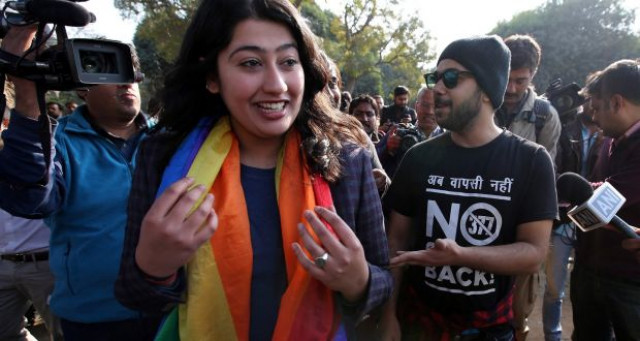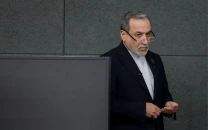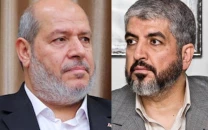Supreme Court of India to review ban on gay sex
Top court takes up review saying no one should have to live in fear because of their sexuality

PHOTO: AFP
The court said it would take up a legal challenge by five high-profile Indians who said the colonial-era law created an atmosphere of intimidation.
"A section of people... who exercise their choice should never live in a state of fear," said the court in its ruling, adding that "societal morality" was subject to change over time.
The announcement is the latest chapter in a long-running legal tussle between social and religious conservatives and the gay community over the law passed by the British in the 1860s.
US voices 'concern' at India gay sex ban
Section 377 of the Indian penal code bans homosexual acts as "carnal intercourse against the order of nature" and allows for life imprisonment, though prosecutions for same-sex activity have been rare.
Gay sex was effectively decriminalised in India in 2009 when the Delhi High Court ruled that banning it violated a person's fundamental rights.
That ruling emboldened the gay community to campaign publicly against widespread discrimination and violence.
But the Supreme Court reinstated the ban four years later in 2013, saying responsibility for changing the law rested with lawmakers not the courts.
Indian filmmaker battles taxman over 'evil' gay movie
That verdict was thrown into doubt again last year when the court referred explicitly to the issue in a landmark ruling upholding the right to privacy.
"The privacy of the home must protect the family, marriage, procreation and sexual orientation, which are all important aspects of dignity," it said in the ruling.



















COMMENTS
Comments are moderated and generally will be posted if they are on-topic and not abusive.
For more information, please see our Comments FAQ